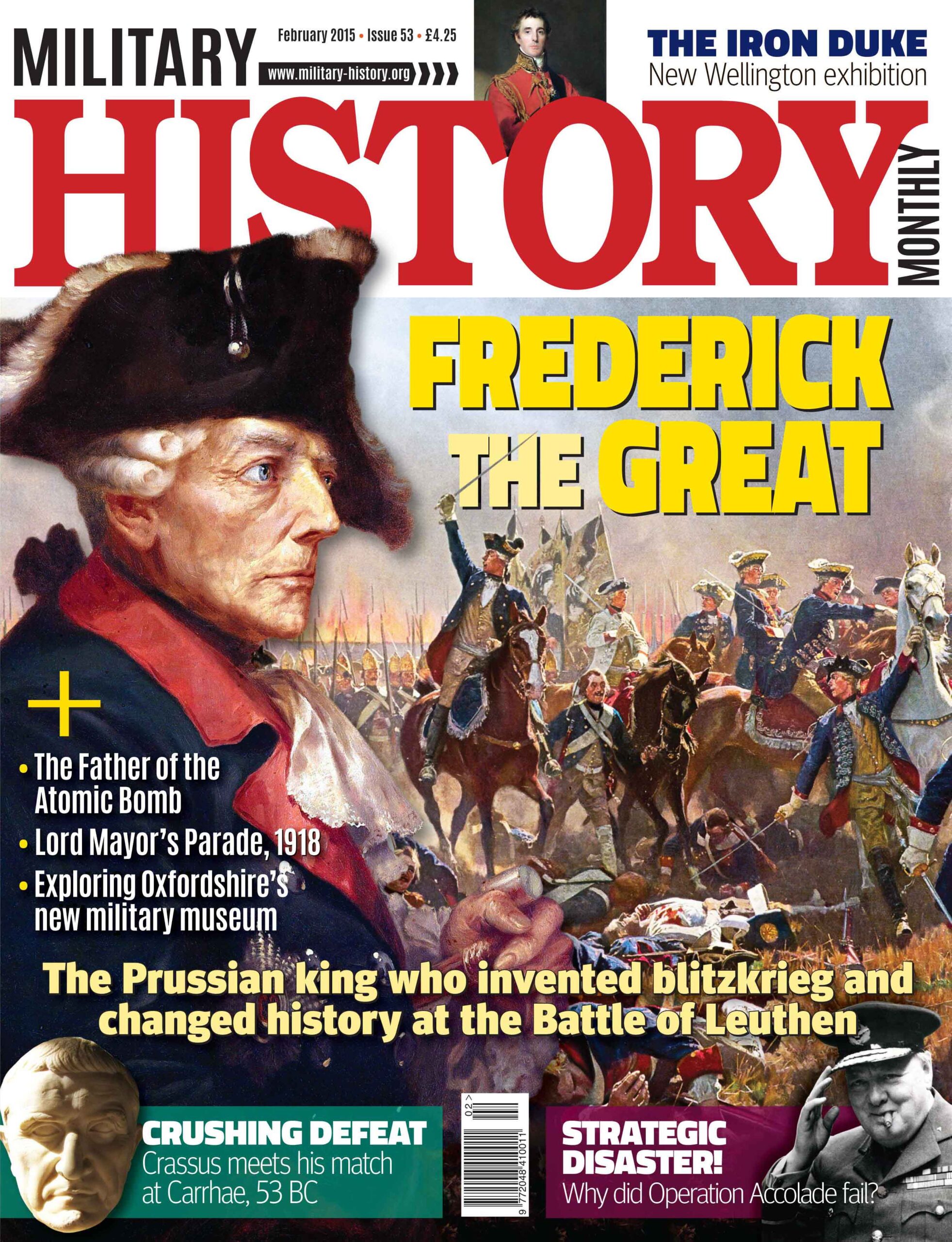The February issue of Military History Monthly, the British military history magazine, is on sale today.
In this issue we cover:
The rise of Prussia
MHM explores the remarkable military career of Frederick the Great, with a special examination of the Battle of Leuthen, 1757. This 17-page special feature includes:
– Grand strategy
– Tactics
– Timeline
– Battle Map
– The legacy
Carrhae, 53 BC – Rome’s Middle Eastern disaster
Erich Anderson analyses Rome’s costly defeat against the Parthian Empire.
Digging in – The evolution of trench warfare
David Porter investigates the origins of this attritional form of conflict.
The Dodecanese Campaign – Defeat from the jaws of victory
Nick Hewitt looks into the reasons behind this WWII operation’s failure.
Also in this issue: Behind the Image, Conflict Scientists, War Culture, Book of the Month, War on Film, Museum Review, Top Five, Competitions, and much more.
From the editor
Neil Faulkner, Editor
One thing Frederick the Great did not do was to bring about ‘a revolution in war’. He sort of did the opposite: he brought to its highest peak of perfection an existing way of war.
Frederick occupies a distinctive place in the history of war. The invention of the bayonet at the end of the 17th century had turned the European infantryman into an all-rounder. Gone at a stroke was the need to co-ordinate the movements of ‘pike and shot’ on the battlefield.
But a problem remained: because 18th-century muskets were inaccurate, short-range, slow-firing weapons, you needed lots of them to have an impact. So soldiers had to be drilled to march, manoeuvre, and deliver fire en masse.
On the other hand, most ancien régime generals were cautious and risk-averse. Armies were too valuable to be squandered, and their main role was to hold ground and defend territory. Warfare across most of Europe was shackled by conservatism.
The two main exceptions were Britain and Prussia. Britain was a rising maritime and colonial power under parliamentary government. Prussia, though, was a traditional absolute monarchy. Why did it not conform to conservative type?
Our special feature this issue explores the military reforms and battlefield triumphs of Frederick the Great of Prussia. We also have David Porter’s analysis of the development of trench warfare in the half-century before the First World War, Nick Hewitt’s account of the little-known Dodecanese campaign of 1943, and Erich Anderson’s reconstruction of Rome’s defeat by the P Parthians at Carrhae in 53 BC.

